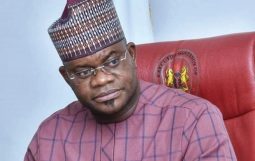Yoruba social cultural group, Afenifere headed by Reuben Fasoranti has asserted that President Bola Ahmed Tinubu must be allowed to complete an eight-year tenure, just as former President Muhammadu Buhari did.
In a recent statement signed by Abagun Kole Omololu in Akure, the Ondo State capital, Afenifere contends that Tinubu’s presidency should not be labeled a “Yoruba government,” drawing a parallel to Buhari’s administration, which was never referred to as a “Fulani government.”
‘First, the Constitution of the Federal Republic of Nigeria stipulates that a president is elected for a four-year term in the first instance, with the possibility of a second term making a maximum of eight years in office. President Tinubu, having been elected for a four-year term, must seek a renewed mandate from Nigerians through the electoral process if he desires a second term. Re-election is not a given; it depends solely on the will of the electorate, who will determine whether he deserves another term or whether a leadership change is warranted’.
‘It is also important to note that President Buhari did face challenges from within his party and the opposition before securing both his first and second terms. Unlike Tinubu, Buhari never campaigned on the slogan “Emilokan” (It is my turn) or laid claim to a sectional entitlement, such as the “Hausa turn” at the presidency. Although Buhari’s performance in office remains a subject of debate, the approach he took in seeking re-election was notably different. Northern socio-cultural groups did not aggressively campaign for him to complete a second term, understanding that such a mandate lies with the Nigerian people not with any ethnic or regional bloc’.
‘To insist, as Afenifere has done, that President Tinubu must complete an eight-year term implies a fear of electoral rejection and an attempt to preempt the constitutional process. Such a stance undermines democratic principles and suggests an entitlement mentality that is alien to the spirit of democratic competition’.
‘Secondly, the formation of political coalitions is a common and legitimate feature of Nigerian politics, not exclusive to any region or ethnic group. From the First Republic to the present Fourth Republic, political alliances have been instrumental in shaping governance. For instance, the AD/APP alliance in 1999 and the merger of ACN, CPC, ANPP, a faction of APGA, and the nPDP to form the current ruling party, the APC, are examples of strategic coalitions. It is worth remembering that President Bola Ahmed Tinubu was one of the key architects of this historic merger’.
‘Therefore, any current effort to form a coalition aimed at unseating the incumbent president should be viewed not as a northern conspiracy against the Yoruba nation, but as a legitimate political maneuver within a democratic framework. The right to mobilize, form alliances, and challenge power through constitutional means is fundamental to democracy and should not be misconstrued along ethnic or sectional lines’.
The statement reads.







